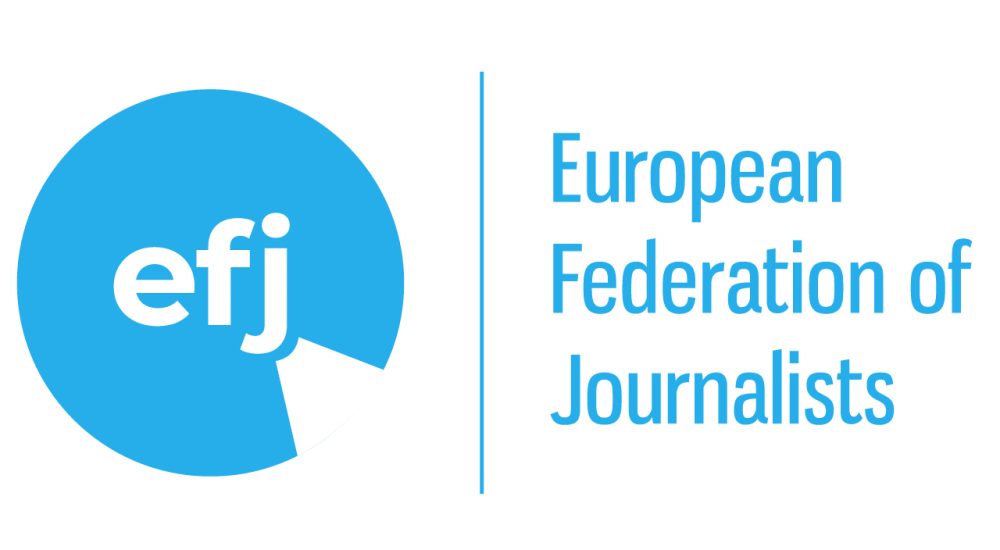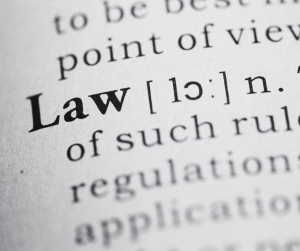On 8 July, the European Commission published its 6th Rule of Law (RoL) report, assessing countries’ advancements and progress in four key areas, one of which is media freedom. The same four candidate countries as in 2024 – Albania, Serbia, North Macedonia and Montenegro – are included alongside the 27 EU Member States. The European Federation of Journalists (EFJ) deplores the fact that the report does not reflect the decline in human rights and press freedom observed in several of the countries monitored, starting with Serbia.
The RoL Report is the result of multiple stakeholder consultations (including with the EFJ and its affiliates), country visits and is based on valuable sources such as the Media Pluralism Monitor and the Media Freedom Rapid Response (MFRR).
This year’s report is particularly noteworthy as it was unveiled exactly one month before the European Media Freedom Act (EMFA) comes into force, on 8 August 2025, and days before the presentation of the EU’s Multiannual Financial Framework (MFF), the next long-term EU budget for 2028-2034.
The EFJ welcomes the European Commission’s intention to use its monitoring of the rule of law situation as a basis for implementing the EMFA. We further welcome the announcement that the upcoming MFF intends to ensure that compliance with the principle of the rule of law remains an obligation for EU funds. The EU must support reforms and address challenges identified in the RoL report, whose effectiveness requires close monitoring.
However, once again, the EFJ deplores the soft wording and weak assessment of the different areas of media freedom, which is far from reflecting the dark picture in some countries, and fails to provide an adequate response to the repeated warnings from journalists’ organisations and scientific research. Instead, the report seems to enumerate a number of positive initiatives undertaken by Member States, without assessing or verifying their effectiveness in practice.
From journalists’ safety to access to information
On the safety of journalists, the report primarily emphasises the EU legislation and recommendations adopted in recent years (EMFA, Anti-SLAPPs directive, Recommendations on the safety of journalists) noting positive developments in Belgium, Ireland, Greece, and Poland through revisions of defamation laws. Several countries have adopted dedicated Action Plans and have taken steps to promote the safety of journalists, according to the report. On the other hand, Bulgaria, Malta, Italy and Slovakia, Serbia are singled out as examples of poor practices.
On media pluralism, the report refers to the 2025 findings of the Media Pluralism Monitor (MPM) which showcase growing difficulty in the media landscape caused by declining working conditions for media professionals, severe economic strain on the sector, and a political climate hostile to media freedom. It also documents growing risks from highly concentrated media ownership, creating fertile ground for political influence.
On the independence of media regulators, the report underlines their extended tasks and competences following new requirements imposed by the EU Digital Services Act and the EMFA. While improvements have been tracked in 15 countries, with more powers and resources affected to these bodies, serious concerns about the independence and impartiality of media regulators persist in Hungary, Greece, Poland, Albania and Serbia.
Regarding the transparency of media ownership, positive developments were found in Croatia, Greece, France and Latvia with the establishment of registries or databases making registration of information about media ownership mandatory. In Bulgaria, Czechia, Netherlands, Cyprus and Spain, challenges remain pending adoption of new legislation.
Regarding the safeguards against undue political influence, the EMFA is supposed to address the issue of state advertising by setting out requirements for allocation criteria and procedures. Legislations are being drafted in Cyprus, Malta, Slovakia and Poland. However, in a majority of countries, especially in Hungary, Romania and Albania, the situation is severe due to the complete lack of measures or significant legislative shortcomings, which enable the opaque and unfair allocation of state advertising. Reforms on the funding of public service media are underway in 12 countries. The lack of independence of public service media in Greece, Slovakia, Romania, Malta and Hungary are of particular concern.
Finally, legislative changes regarding access to information were found in Estonia, Luxembourg, Belgium, the Netherlands, Bulgaria, Denmark and Greece, although their effectiveness “often needs to be verified”, acknowledges the report. Italy and Montenegro are cited as examples of poor practices.
“This year’s Rule of Law report makes numerous references to the obligations contained in the EMFA, which must deliver on its promises. We reiterate our calls on the European Commission to consider sanctions as part of the gradual implementation of the EMFA to ensure its correct application, and to secure significant funding for journalism to meet the challenges of the rule of law in its next long-term budget,” said EFJ General Secretary Ricardo Gutiérrez. “We regret that the report is not part of a dynamic observation process capable of highlighting crisis situations. The ferocious repression underway in Serbia cannot be treated as a mere source of concern. This is tantamount to normalizing blatant violations of the rule of law,” he added.
Source: EFJ



